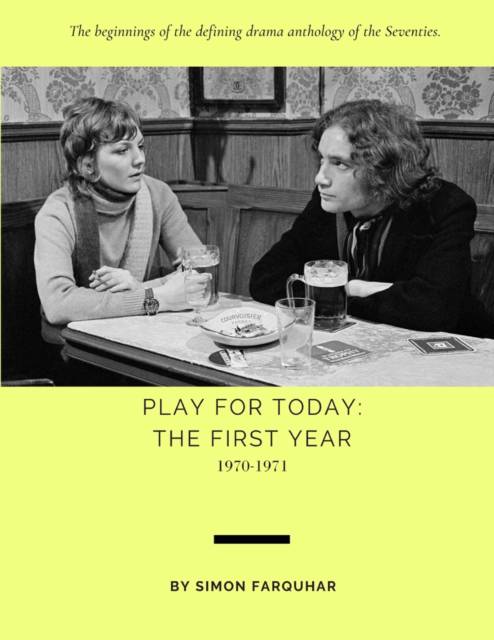
- Afhalen na 1 uur in een winkel met voorraad
- Gratis thuislevering in België vanaf € 30
- Ruim aanbod met 7 miljoen producten
- Afhalen na 1 uur in een winkel met voorraad
- Gratis thuislevering in België vanaf € 30
- Ruim aanbod met 7 miljoen producten
Zoeken
Omschrijving
"The British film industry was alive and well in the Seventies. It was just in television rather than cinema." In 1970, after a six-year grip on the public imagination, The Wednesday Play changed its name to Play for Today. A new name for a new and very different decade, but the principles of the series that had introduced millions to bold new talents such as Dennis Potter, Ken Loach and Tony Garnett, and to Up the Junction and Cathy Come Home, remained the same. Play for Today would run for 14 years on BBC1, an unpredictable space in the schedule for contemporary writers to tell their own stories in their own ways. This is the story of its astonishing first year, which included work by John Osborne, Ingmar Bergman, Dennis Potter, Jim Allen, Simon Gray and Peter Nichols, the story of the series' origins, and also the in-depth story, told for the first time, of its most controversial and confrontational entry, W. Stephen Gilbert's Circle Line. Featuring a wealth of interviews with writers, actors, producers and directors, this is the definitive account of an exemplary period in television drama,
Specificaties
Betrokkenen
- Auteur(s):
- Uitgeverij:
Inhoud
- Aantal bladzijden:
- 178
- Taal:
- Engels
Eigenschappen
- Productcode (EAN):
- 9781716179136
- Verschijningsdatum:
- 7/02/2021
- Uitvoering:
- Paperback
- Formaat:
- Trade paperback (VS)
- Afmetingen:
- 216 mm x 279 mm
- Gewicht:
- 566 g

Alleen bij Standaard Boekhandel
+ 84 punten op je klantenkaart van Standaard Boekhandel
Beoordelingen
We publiceren alleen reviews die voldoen aan de voorwaarden voor reviews. Bekijk onze voorwaarden voor reviews.











